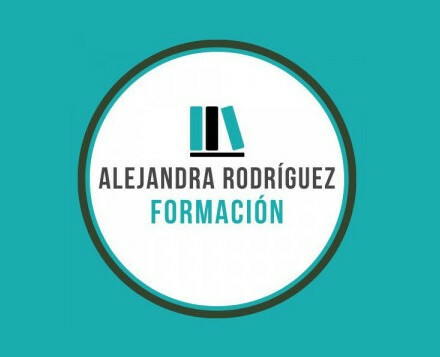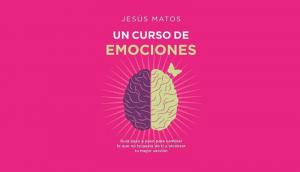Alejandra Rodríguez: «The family is a basic pillar in educational psychology»
Our passage through the educational system is, in many ways, one of the most influential elements in what will be our room for maneuver when deciding what we want to be in adulthood. That is why it is essential to intervene as soon as possible in those children with special needs who may present a risk of school failure or delay in maturational development.
To better understand this area of work, We interviewed the psychopedagogue Alejandra Rodríguez García, a professional based in Jaén and with many years of experience supporting children and adolescents.
- Related article: "The 13 types of learning: what are they?"
Alejandra Rodríguez: psychopedagogy in a key stage of life
This time we talk to Alejandra Rodriguez Garcia, psychopedagogue and expert in caring for children with special needs. In this interview she explains what it is like to work helping young people with problems that can interfere with their educational path.
What services do you offer in your center?
In our center we carry out different projects. On the one hand, we have the project that concerns us, that of attention to students with specific educational support needs. Within this attention, we focus on two services mainly: both pedagogical reinforcement, and reinforcement in the area of language. Both are essential for a school-age child to successfully complete their studies, despite their limitations.
Within this project we also offer study techniques services, improve attention problems, reading-writing problems, reading comprehension problems, anxiety, deconcentration, difficulties in social skills or in improving emotional intelligence, regardless of whether they are diagnosed as NEAE students or not.
A second project, also close to the previous one, is the aid for school support, from infant to high school. In this project, we focus on improving and helping the centre's students in their day-to-day life, in such a way that we have professionals specialized in all the areas and subjects that they need. With a treatment very close to the student, where we always try to get the best out of him or her, getting them to achieve her goals and helping them in the process.
The third project is languages. We have native teachers in English, French, German, Italian, Arabic, Japanese and Spanish, in such a way that as languages are closely linked today both For school-age students, as well as for the business world, we have classes both individually and in small groups, and adapted to the needs of the student.
The latest project that we carry out in our center is the preparation of the competitive examinations at both the state and regional levels. We prepare different specialties, both in the branch of education, as in health and administration.
What are the main disorders or problems in which you intervene?
The professionals that we have in the center are prepared to attend to any type of need (intellectual disability, ADHD, motor disability, autism spectrum disorder, any type of learning disability, such as any problem related to language…).
In our trajectory, the students who come to us the most are students diagnosed with ADHD, Asperger's, specific language disorder and dyslexia, but as I have commented previously, we can serve any student whatever the need they may have.
Taking into account the positive impact on society that these kinds of services have, especially in terms of regarding people in vulnerable situations, are there grants or scholarship systems associated with what do you do

Both in the Junta de Andalucía and at the State level, there are scholarships for students with Special Educational Needs.
Focusing on Andalusia, the scholarship is requested in the month of September. The counselor of the center where the boy or girl is enrolled has to mark what reinforcement he or she needs, usually language reinforcement and pedagogical reinforcement are usually given.
The next step is for the student's mother or father to choose in which center she wants to take her son or daughter so that, in the afternoon, they can give her the service she needs. Then he brings us the scholarship and we make him a report of what we are going to work with the student throughout the year, in such a way that this report, together with what they do at the center for part of the Guidance Department or the Educational Guidance Team, present it in the scholarship section and, for the month of November or December, they tell you if they have been awarded or not.
This type of scholarship, always subject to the income that the parents have, covers all the assistance they need both in reinforcement pedagogical and language reinforcement, so that parents will not have to pay for any of the services provided in the center.
Do you focus only on caring for the children who are beneficiaries of these scholarships?
No, we are aware that the scholarship is very limiting and that there are students who need help and who cannot apply for it, which is why we are also here. Having very competitive prices so that no child is left unattended.
Probably in an area like this there is a significant difference between theory and practice. What do you think are the most relevant aspects that you have learned during your professional career about attention to diversity?
Mainly, that each child is different, that as you say, one thing is theory and another is practice, because we cannot apply the same theoretical principles to all children equally. Each child has different abilities, a learning style, a rhythm of learning, and for that reason, we as professionals, have to adapt to them and not them U.S.
What happens beyond the consultation is very relevant; How do you work in collaboration with the families of these children?
For us, the family is a basic pillar in the psychopedagogical process. From the first moment, we have a very close relationship with the parents of our students. We listen to them, we attend to their concerns and we give them the best solution, always in consensus. The communication channels are many, we provide the WhatsApp service, since it is one of the most demanded by families.
What is the work philosophy that you apply at the center, and what do you think characterizes your way of understanding the services you offer?
The five key points in our work are quality, excellence, loyalty, professionalism and closeness.
What are the aspects of your work in supporting these people that you find most stimulating and motivating?
It is essential that we as professionals know how to understand the student, their needs, their concerns and, above all, teach him to manage his emotions, his self-esteem, resilience and self-control. All this in order to be able to satisfactorily face any difficulties that may be encountered along the way.

